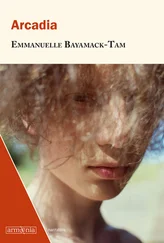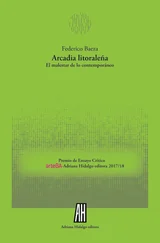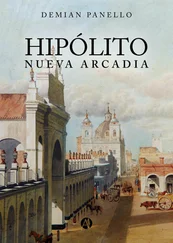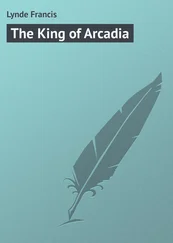I wish you could stay, Astrid, he says, surprising himself.
The old Astrid looks at him, her face soft. She shrugs, says, Handy.
Handy is demented. He thinks at night that he’s in Korea, shouts things like Off to the Repo Depot for you, soldier! and Ash and trash! Everything after his early twenties has been expunged: Arcadia a golden hope perpetually growing in him, his experiments with the doors of perception only glimpses down a long corridor. After his fourth wife left him, only Astrid visits every day. Fat Erik comes three times a year. Old-people garage, Astrid calls the nursing home. But there is a pool, gourmet buffet spreads; it is its own perfect place, in its way.
Into the silence, Hannah speaks. Her hair is still soft around her face, though white. The black dress bags on her, the pearls as sallow as her skin. The only thing I wanted, she says, was to not be a burden. Quick and painless, how I wanted to go.
But the Universe called you back, Astrid says.
For no reason, Hannah says.
You find the reason, Astrid snaps. Finish with the self-pity, and move on.
Bit is so surprised he laughs. Grete begins to cry: So mean, Mormor, she whispers. Astrid ignores them. First, I have hired a nurse, she announces. She is beginning tomorrow. Luisa, her name, a fine lady. When more help is needed, we will hire more help. Second, she says, Ridley, you must talk today to your department and take the rest of the semester off. Third, I have talked to Grete’s school in the city and the school up here. All is settled. She may start on Monday.
Wait. No, says Grete. I have a life . I can’t be here. I have college prep tomorrow. Right, Dad? We have to go home.
Oh, yes, says Astrid. Your father has decided. I’m surprised he hasn’t told you.
I wanted to, he says, ducking from his daughter’s glare. But you were out for a run.
No, Grete shouts. I will not .
The strange new anger rouses itself in Bit, and he hears himself saying in a tight voice, Grete, outside, now. His daughter shuts her mouth. They walk through the ferns into the Sugarbush, Grete’s face blanketed with darkness. Dad, she says, turning on him at last. Isn’t this already traumatic enough for me?
Since when, Bit says, has this been about you?
I don’t have to be here. You could be here and I could go home and stay with Matilda. Or Charlotte. Or Harper, you love Harper, she’s a total nerd.
I’m going to need your help, he says.
She looks trapped. But what about my stuff? she says.
I’m heading home tonight, he says. Make a list. I’ll be back when you wake up.
What about school? I’m not going to any shitkicker school. They can’t be as advanced as we are. I’m doing precalc. I’ll be bored .
It’s only the rest of the semester, baby. Probably.
I can’t. I can’t, Dad, Grete says, her voice sharp. I can’t be in the house. She smells like she’s rotting or something. I can’t be where Grumpy fucking killed himself, Dad, I can’t do it. You can’t make me. I’ll run away.
She sees the way he winces. Like Mom, she says, watching him. I’ll run away.
Bit turns. He can hardly see the ground. How did I raise such a selfish child, he says, so quietly he’s not sure she heard him. But when he walks into his parents’ house, he can hear her sobbing, then the heavy front door of Titus and Sally’s treehouse slamming over and over again.
When the others have gone to sleep, Bit takes Hannah’s ancient car. For the first hour of the drive, he loves the violence of the wind through the open window, how it chases off his cloud of dread, but when it gets too cold, he rolls up the window and turns on the radio. Classic rock, apparently, is the music he loved in his twenties. He finds himself singing along in a voice raspy with disuse. The announcer comes on, then three chords that make Bit laugh with surprise: a funk-flavored song, Cole’s one big hit. He’d struggled for so long, had so many bands, and this success out of nowhere had shattered him. He stopped playing music and bought a nightclub. Now he writes monographs on Palestrina, of all things.
At the end of the song, Bit turns off the radio to savor the pleasure of Cole’s young voice. The lights of the city rise in the windshield. He pushes through the flashing streets. There are fewer pedestrians out now that the disease is rushing toward them, and on most faces there are masks like glowing muzzles. He drives into his poorly lit neighborhood. When he steps from the car, he hears the deep, low hum of the city, both growl and digestion. He only ever notices this sound after returning from the quiet of the country.
Inside, the house is cool and there is the sweet rot of garbage he’d forgotten to take out when they left. He does the dishes, pays the bills, redirects mail, turns off the water, sets the lights to turn on randomly at night, makes sure everything is secure.
He takes a cooler of food outside for the family beside the steps. They are under a tarp, in two connected sleeping bags. The heads of the parents curl over the children, two small lumps close together. He watches them for some time and wishes he had the courage to rouse the father, tell him quietly that Grete and he will be gone for some time, to apologize for not leaving food every day now. But he can’t take the risk they’d try to break into the house, to squat there: squatting laws being what they are, it’d take months to get them out. He creeps away, unsettled.
He spends only a few minutes packing for himself. In Grete’s room he gathers everything he thinks she’ll need: the clothes he remembers her wearing recently, the shoes, the photograph he’d taken of her and her mother when Grete was a toddler, forehead to forehead like conspirators. How alike they’d been, two sections of one soul. He takes the stuffed frog from when she was little, knowing she’ll need it. She looks like an adult now, but there is still a sliver of girl in her that Bit would fight to protect: the uncertainty that steals over her when she’s talking about boys, the delight on her face when he buys her anything pink. The moments when the e-reader has fallen from her hands and she gazes out the window, biting the corners of her long pale mouth, dreamy as her mother.
He has been staring for a while at a yellow raincoat when he sees that its big pocket is bulging. He reaches in. When he opens his hand, he finds his own Zippo lighter from so long ago, rolling papers, a huge bag of weed. Something catches like a fish bone in Bit’s throat. It doesn’t dislodge again until he’s a half hour away from Arcadia, the sunrise burning in the rearview mirror. He steers down a long straight road with his knees and rolls a hasty joint and smokes it. When his head swims, he tosses the inch-long roach and the rest of the weed out the window in the direction of a maple thick with crows. A mile later, he goes hysterical at the thought of stoned birds, their wings failing them as they drop lazily from the sky.
The dawn echoes its quiet in Bit’s city-dinned ears. He is making pancakes to wake up Grete and can’t resist gobbling the first four down. Astrid marks Hannah’s medication bottles, and they’re drinking orange juice from powder. It is all they can get anymore, after the citrus blight. He misses pulp and the acid burn of real juice in the throat.
Honeybees, Astrid says out of nowhere.
Honeybees? Bit says. He wonders if this is a rational thought that his pot-slowed brain just can’t digest.
Passenger pigeon, she says. American bullfrog. I am trying to discover what we are, Arcadians. Going extinct. So many of us dead, dying, gone.
We are the dodo, Bit says and laughs. Abe’s shadow moves, brief and cold, over the room.
Читать дальше
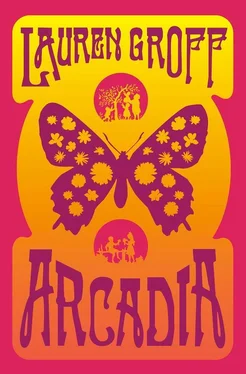
![Andrea Höst - In Arcadia [Touchstone - Extras]](/books/56405/andrea-host-in-arcadia-touchstone-extras-thumb.webp)





